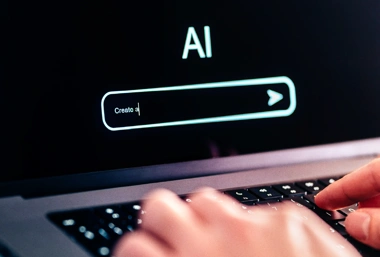Child protection experts at the Internet Watch Foundation (IWF) gave EU parliamentarian Jeroen Lenaers insight into the harms caused by “abhorrent” AI-generated sexual abuse content as he visited the charity’s offices in Cambridge, UK, today.
Dutch MEP Lenaers from the EPP group met with the IWF’s new CEO Kerry Smith and spoke with analysts and tech experts who view criminal content at the IWF, Europe’s largest hotline dedicated to finding, assessing and removing child sexual abuse images from the internet.
Mr Lenaers, who leads the European Parliament’s ambitious work on the recast Child Sexual Abuse Directive, made the visit ahead of important trilogue negotiations on the legislative proposal that will discuss, among other items, the criminalisation of AI-generated child sexual abuse material across EU member states.
Earlier this year, the IWF confirmed reports of AI-generated child sexual abuse imagery had risen by 400% as AI child sexual abuse was discovered on 210 webpages in the first six months of 2025, compared to 42 found in the same period in 2024. Each page can contain multiple images or videos.
The number of AI-generated videos had also increased, with 1,286 individual AI videos of child sexual abuse identified in the first half of this year compared to just two in the same period last year.
All the AI videos confirmed by the IWF so far this year had been so convincing they had to be treated under UK law exactly as if they were genuine footage. Creating, possessing and distributing AI-generated child sexual abuse imagery is illegal in the UK, which means that IWF analysts can take steps to remove the content in the same way as they would with conventional child sexual abuse material.
Of the 1,286 AI videos confirmed this year, 1,006 were assessed as the most extreme (Category A) imagery – videos which can show rape, sexual torture, and bestiality.
MEP Jeroen Lenaers said: “Rapid technological change has given rise to new forms of online child sexual abuse. The revised directive presents a unique and timely opportunity to modernise and harmonise the rules on preventing and investigating such offences across the EU. We must seize this moment and translate it into concrete action to ensure that EU legislation protecting children is truly future-proof.”
“Where the law is not fit for purpose, we must act swiftly to better protect children and my visit here today is essential to find out more about this threat and how best to tackle it. AI-generated child sexual abuse is horrific and must be treated in the same way as if it were real child abuse material. We know that viewing AI child sexual abuse material is a gateway to real child sexual abuse and must be dealt with accordingly.”
“I’m therefore grateful to be able to visit today and to learn first-hand about what IWF analysts are seeing and gain more insight into how AI tools are being manipulated by predators to suit their twisted purposes.”
IWF CEO Kerry Smith welcomed Mr Lenaers and highlighted the importance of a joint international approach to tackling AI child sexual abuse content.

